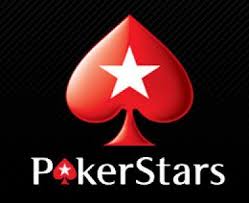Amaya Gaming, California Tribes and Card Rooms Decry California Poker Bill AB 9
 A coalition between Canada’s Amaya Gaming, PokerStars, California’s Native American Tribes, the San Manuel and Morongo Band of Mission Indians, as well as California-based card rooms, the Commerce Card Club, the Hawaiian Gardens Casinos and Bicycle Casino, has publicly denounced the online poker bill introduced in Congress last Monday (Dec. 08, 2014) by State Assemblyman Mike Gatto (D-LA).
A coalition between Canada’s Amaya Gaming, PokerStars, California’s Native American Tribes, the San Manuel and Morongo Band of Mission Indians, as well as California-based card rooms, the Commerce Card Club, the Hawaiian Gardens Casinos and Bicycle Casino, has publicly denounced the online poker bill introduced in Congress last Monday (Dec. 08, 2014) by State Assemblyman Mike Gatto (D-LA).
Touted as the PokerStars Coalition, the group publicly denounced Assembly Bill (AB) 9 “The Internet Poker Consumer Protection Act of 2015,” as a bill that intends to establish, rather than mitigate, “artificial competitive advantages.” Although purportedly put forward as a legislative proposal aimed at establishing a structural framework for California’s proposed regulated online poker industry, the bill’s “bad actor clause” provisions tend to benefit some, and will likely deprive Californians the best possible online poker experiences as well as possibly divide the community. The Coalition therefore vows to oppose any legislation that does not promote healthy competition as a better approach to providing only the best to consumers.
The provisions of the “bad actor clause” include a proposed rule of automatically disqualifying online poker operators who continued to offer online poker games after the enactment of the Unlawful Internet Gambling Enforcement Act (UIGEA) in 2006. Under this proposed rule, PokerStars on its own would automatically be barred from participating in California’s future online poker market.
However, since Amaya Gaming had acquired and taken over The Rational Group, parent company of the PokerStars website, the “bad actor” attribute of the world’s largest online poker facility would be eased out. The Quebec-based and multi-licensed gaming company has a clear record as far as operating in regulated gambling jurisdictions is concerned.
Yet another provision that obviously aims to tightly seal California’s online poker market against a possible PokerStars’ entry, is the rule that bars any eligible company from using covered assets acquired from or developed by a UIGEA violator. Albeit PokerStars is now a wholly owned subsidiary of Amaya Gaming, the “covered asset provision” will prohibit the use of the PokerStars brand, service, software, system, customer data, or other information and technology, whether directly or indirectly associated with the violation of the UIGEA Act of 2006.
Although Section 19990.406 ( c )( 7 ) of AB 9 states that the California Gambling Control Commission (CGCC) has the authority to waive the prohibition against the use of tainted covered assets, if the license applicant could show “clear and convincing evidence” of not violating any state or federal law in acquiring such assets. Law experts believe that this particular provision overlooks the fact that an iGaming company that has broken a state or federal law as far as Internet gaming operations and transactions whether pre, post or during UIGEA enactment, is automatically a “bad actor” and therefore disqualified in order to ensure consumer protection.
If for the sake of argument Amaya Gaming is unable to convince the CGCC that it did not breach state or federal law when it acquired PokerStars, will the CGCC consider the Canadian company a “bad actor” but only as far as the use of covered assets is concerned?
Other organizations believe that AB 9 deviates from its purpose of instituting consumer protection because there are so many flawed rules being proposed, which in general, artificially limits the providers and reliable operators who will be allowed to participate in California’s future online poker market.

















